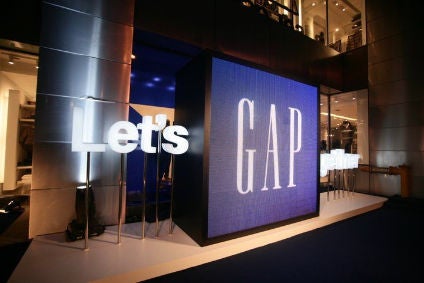
US specialty apparel retailer Gap Inc says it will work collaboratively with its vendors to compensate them in full for finished goods and goods in production that were cancelled or subject to pack and hold.
In a statement, the company, which operates brands including Old Navy, Gap, Athleta, and Banana Republic, adds while it has extended payment terms on certain orders, in the immediate term it is providing low-cost financing to vendor partners.
It is also working with its banking partners to increase the amount of funds available within the programme as it moves forward.
The statement comes after Gap said last month it was working to identify products it can sell in the short-term, those it can store and sell later, planned orders it will not place and – where necessary – those orders it needs to cut.
“Throughout, we have been in close communications with our vendors and, over the past few weeks, we have been meeting with each of them individually to evaluate our orders, understand local operating abilities or restrictions in each sourcing country, discuss the health and wellness safeguards in place for factory workers, and establish plans for the months ahead,” the retailer said at the time.
It noted the number of cancelled purchase orders is “lower than 3% of purchase orders by value for finished garments and garments in production” and said it is working with vendors to explore liquidation opportunities for these finished garments.

US Tariffs are shifting - will you react or anticipate?
Don’t let policy changes catch you off guard. Stay proactive with real-time data and expert analysis.
By GlobalDataIts latest stance has been welcomed by the Worker Rights Consortium (WRC) which has developed an online tracker launched to monitor the response of leading apparel and footwear brands and retailers to their suppliers and workers during the coronavirus crisis.
In its own statement, the WRC says with the commitment to pay in full for cancelled orders of finished goods and goods in production, and to pay in full for orders previously subject to pack and hold storage charges, Gap Inc is now not cancelling any orders, nor applying any discounts.
“Gap Inc is still extending payment terms for a portion of its supply base. However, we note that the corporation has a supplier finance programme, which provides low-cost financing to suppliers, and it is the WRC’s assessment that that program now commands sufficient lending capital to address supplier needs that may arise as a result of the delayed payments.
“Accordingly, we now list Gap Inc among those corporations committed to pay in full. Given that the corporation has faced challenges during the crisis more severe than those confronting some of its competitors, and given the large volume of orders at stake, it is to Gap Inc’s credit that it has made it a priority to honor its obligations to suppliers and workers related to past orders.”
The retailer had previously been listed on the tracker among those corporations that have not made a commitment to pay in full for goods that were in production when the crisis began.
WRC says this was due to its cancellation of some orders; its imposition of sizable discounts on some orders, related to storage charges; and its extension of payment terms for some orders, without the provision of adequate low-cost financing to affected suppliers.




